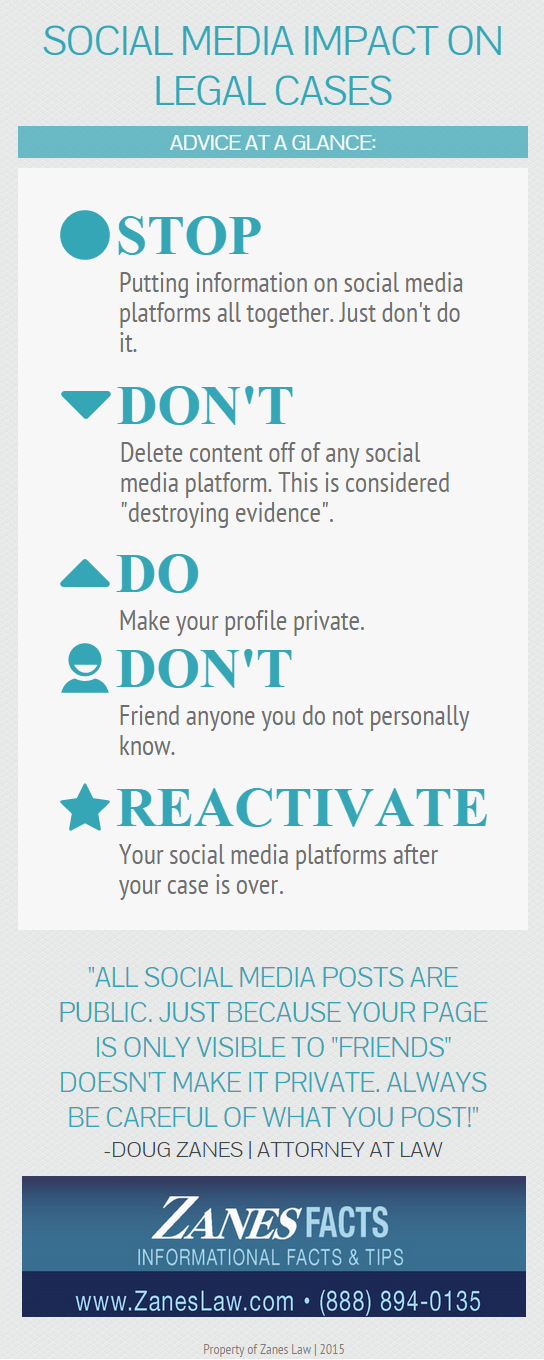Infographic: Your Facebook Profile Could Cost You Your Case
January 7, 2015

With the rise in popularity of Facebook, Twitter, Instagram and other social media platforms, many people unknowingly share a great deal of personal information. Most people don’t realize how this personal information may harm their chances for recovery in a legal dispute.
If you’re involved in a legal case, our general advice is:
- Stop putting information on social media platforms all together. Just don’t do it.
- Do not delete content off of any social media platform. This is considered destroying evidence.
- Make your profile private.
- Do not friend anyone you do not personally know.
- Once the case is over, you may go back to being active on social media.
If you insist on being active on social media, here are some general guidelines:
- Do not post anything about your legal case; whether it is a personal injury case, divorce case, custody case, or any other legal matter.
- Do not accept any new friend requests unless you personally know the person who has friended you.
- Why? The insurance adjuster may friend you to get access to your page, pictures, posts, and try to use specific content against you.
- What type of content can be held against you? Let’s use a personal injury case as an example… if an accident victim claims to have severe shoulder pain, yet the victim has been posting pictures of themselves hiking and doing physical activity, the insurance adjuster may use these photos against them and lessen the value of the injury claim because the victim is not “too injured.”
- Put your profile on private.
- Why? Same reason as above. The insurance adjuster may want to gain access to your personal page.
- DO NOT DELETE ANYTHING! Once you post information you cannot go back and delete items.
- Why? If you’re involved in a legal case and you delete anything on a social media platform, you’re destroying evidence. NOTE: An attorney should never advise you to delete content on your social media platforms. If they do advise you to do so, consult with another attorney and do not delete anything.
Public information:
- All social media posts are public. Just because a page is only visible to “friends,” it’s still public and available to any attorney who obtains a subpoena to look through your social media platform.
- In general, anything you have ever posted is fair-game. Just because it’s been deleted in the past, doesn’t mean its non-existent.

For more information on this topic, listen to Doug Zanes’ talk-show episode: Social Media Impact On Legal Cases







